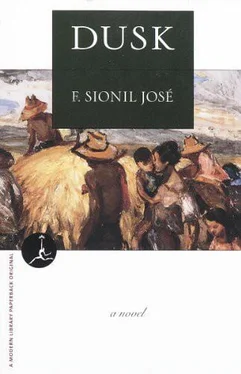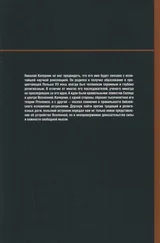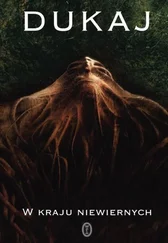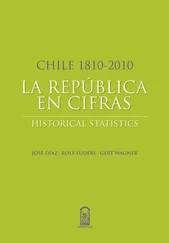The farm was but a short distance from the village. The saplings he had planted here — catuday, marunggay, sineguelas, pomelo — they were bigger now. The mound to which instinct guided him relentlessly was the farthest of the three; twice as tall as he, and crowned with tough ledda grass.
He had brought a spade and a crowbar to loosen the tough earth. He was so intent with his digging he was unconscious to all the world until a sharp hissing shocked him to attention. He breathed deeply, stood erect, and looked for the source of the sound. Then he saw it, close to the base of the mound, but almost as tall as he, this cobra, its shining body almost as big as his leg, its hood now spread — so big, remembering it afterward convinced him it was as wide as a winnowing basket, its eyes glaring at him, its fangs bared.
The guardian of the treasure! And briefly he felt that instant of emptiness within him when he faced the gun of the Spanish officer. It was not quite the same feeling, though, and knowing that he was defenseless, that the doom which stared at him with beady eyes could strike before he could move, he remembered the dream, the courage that he must show. He stood motionless. The liturgy! Padre Jose repeating solemnly, Kyrie eleison, Christe eleison —his heart thumping wildly now, his arms nerveless now. Christe eleison again, this time the words taking shape, a hoarse whisper. Christe eleison —this time loud enough for him to hear himself. Then, it happened. The hood which had expanded to the breadth of a winnowing basket started to contract, the head started to sway sideways, the fangs withdrew and the huge snake sank to the earth then slithered into the hole from whence it had come.
Istak breathed deeply, drawing in huge drafts of the good, sweet air; he started to sweat, and his legs felt watery. He wanted to run but could not move, his whole body was numb. The air that had rushed to his lungs reminded him that he was alive, with no venom clotting his arteries, stopping his heart.
The guardian had tested him and he had passed.
In a while, his strength and command of his senses returned. But doubts tugged at him, told him he should leave immediately, forget the dream, the treasure, and even his farm itself. What if there was gold beneath his feet? Or some talisman which was reserved for him alone? Think of your wife, your relatives, and how their lives could be made better. Think.
He grabbed the crowbar and started to dig, scooping up the hard crust of earth which he had loosened. Already, he had dug up to his knees and still there was nothing solid to stop him. The earth began to get soft, then wet, and it was soon muddy. Still, he persisted; he was down to his waist when the mud erupted into a bubbling spring. He had cracked the casement open and water gushed upward so that the hole started to fill.
Water! Life! Istak turned skyward to a sun which now burned in the cloudless sky, and thanked God for this gift. The farm would not be infertile, then. About ten feet from the spring, he dug another hole and stuck the guava twig into it. Then, with the spade, he filled the hole with mud from the spring. The twig would not grow, he told himself; but after what had happened, he knew that here in Cabugawan, in this new Po-on, anything was possible.
The first time — there is always the first time when recognition and discovery come. The knowledge brings the inner vision with which even the blind can see, and reality is no longer something to touch but to covet. Here it was, then, the first time that Istak realized that he could heal, and with it, the exaltation that he had become not a destroyer but what he had always hoped to be, a giver of life.
In November, on the day of the dead, the three brothers journeyed to the Agno. The river was no longer swollen, for the rains had dwindled and the sun came out steady and strong. The few plots planted to the three-month rice had already been harvested, and along the way, they came across Ilokanos who had come down from the north to help in the main harvest. They would stay on to glean the fields.
Every November Istak went to the river, and again he carried a length of siitan which he would cut and make into a small raft when he reached the riverbank. Dalin had prepared the usual offering — a coconut bowl of soft sticky rice cooked in coconut milk. A shelled hard-boiled egg was embedded in the middle, and beside the coconut bowl Istak would place a hand-rolled cigar and a betel nut; then he would put a lighted candle atop the raft and its offering, pray the Rosary, and let the raft float down with the current. Somewhere, amid the reeds or deep in the murk and loam of the great river, Mayang’s spirit would know she was remembered.
They had done all this and now it was high noon — time for the lunch of rice with strips of dried deer meat which Dalin had wrapped in banana leaves, time to dive again for those sticks of pine washed down from the mountain. Thrice a year they went to this river for kindling wood to case the kitchen chores through the soggy days of the rainy season. When the winds were gusty and the oil lamps would flicker, then dim, the lighted pine splinter gave a steady, sooty flame.
The river was clearer. It eddied slowly — a green and living thing. There was hardly any spot now where the water was higher than a man’s head and they could explore the bottom with their feet. It was easy to recognize the driftwood they were after. With a bolo Bit-tik skimmed off the veneer. Pine wood was always scented and yellowish.
By midafternoon they had gathered enough kindling pine and the bull cart was half full with driftwood as well. The sun blazed down, and beyond Carmay they rested in the shade of an acacia tree.
An-no was in the cart, holding the reins of the carabao . He turned to Istak suddenly and shook his head. “There is something wrong with me,” he said. “I feel dizzy, and my head seems to be splitting apart.”
Istak felt his brother’s temple — indeed, it was hot, although they were in the shade. And his pulse was beating very fast. “It must have been the coldness of the river,” Istak said. “Or it must have been something you ate this morning.” What could his brother have eaten in Cabugawan that he himself had not?
He made An-no lie down on the floor of the cart and over his face he laid a banana leaf to shield him from the afternoon sun. Then An-no rose quickly and retched.
That night, back in Cabugawan, An-no could not sleep. Orang and the two small children gathered around him, watching him vomit and defecate in the batalan . Toward early dawn, when his vomit was nothing more than water, chills shook him. They called Istak, who told them to cover him with blankets until the chills subsided. In the morning, An-no was as pale as a cadaver, and seeing him thus, Istak told them all to leave the house so that he could minister to his brother alone.
All that he had learned in Cabugaw came to mind — the medicinal plants, the human body, even astronomy — all the minutiae that Padre Jose had taught him. But of what use were these if it was the spirit of the river that had been displeased?
Then he remembered the guava which he had planted near the spring, the spring which he had dug by the mound and which was now funneled by a series of bamboo tubes to irrigate his farm and to water the tuber pond.
He rushed down and ran to the bangcag with an earthen jar which he filled with water. And from the guava tree which had grown he gathered a handful of young leaves, and with these he went back, told An-no’s wife to boil the leaves, and have him drink as much of the brew as his stomach could hold.
A weak, almost lifeless man — his head held up by his wife — An-no took short drafts of the brew, then lay down. Squatting on the bamboo floor beside him, Istak closed his eyes in prayer. And in that small damp room smelling of tobacco and sweat and imminent death, he was catapulted to another time and place, to a vast white void where he was surrounded by luminous unearthly shapes as if he were within a cloud, and he was stretching his arms, beseeching, asking the unknown around him for his brother’s life.
Читать дальше












